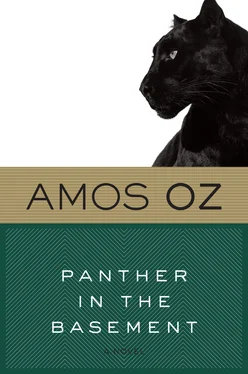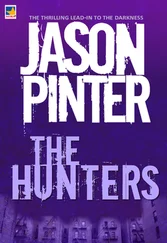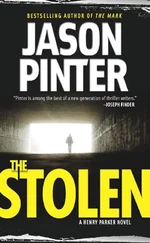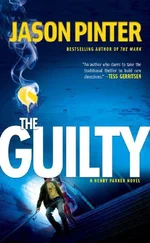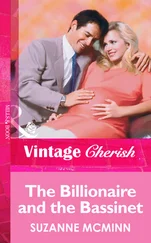I helped them to fold away their bed, which as soon as it was closed pretended to be an honest sofa: Nothing suspicious about me, don't even imagine that I have a totally private inner side, hidden mattresses, pillows, sheets, and a nightie. Never heard of them.
I placed the five cushions on the sofa, spacing them out precisely. I made my own bed, too. We managed to wash and dress and put everything away and straighten the tablecloth and even to hide my mother's slippers under the sofa, all the time, by some unspoken agreement, taking care to avoid looking in the direction of the package, which for some reason had decided in the night to make itself conspicuous. It stood out among the gems of world literature in Polish like a clumsy soldier at morning roll call in a high school. Just at the moment when my mother was about to straighten the flowers in the vase and Father was changing the paper in the blotter on his desk and I had been sent to the kitchen to set the table, the knock on the door came. An English voice asked if there was anyone in, please. Father replied at once, also in English, and also politely:
"Just a minute, please."
And he opened the door.
I was surprised to see that there were only three of them: two ordinary soldiers (one of them had a burn mark that made half his face red, like butcher's meat), and a young officer with a narrow chest and a long narrow face. All three were wearing long shorts and khaki socks that almost met the shorts in the region of the knee. The two soldiers were armed with tommy guns whose barrels were pointing at the ground, as though lowering their eyes, and rightly, in shame. The officer was holding a pistol, also pointing downward; it looked just like Sergeant Dunlop's. (Maybe they were acquaintances or friends of his? What if I told them right away that I was a friend of the sergeant's? Would they abandon the search, and even join us for breakfast? So that we could talk to them, and finally open their eyes to the injustice they were inflicting on us.)
Father pronounced the words "Please come in" with particular and emphatic courtesy. The thin officer was startled for an instant, as if Father's courtesy converted the search of this apartment into an act of extreme rudeness. He begged our pardon for disturbing us so early in the morning, explained that unfortunately it was his duty to have a quick look around and make sure everything was as it should be, and without thinking he put his pistol back into its holster and buttoned it up.
There was a moment's hesitation, on their side and on ours: it was not clear how we should proceed. Was there anything else that needed to be said, on our side or on theirs, before the inspection could go on?
Whenever young Doctor Gryphius at the clinic in Obadiah Street examined me, she always had difficulty finding the right words to ask me to strip down to my underpants. My mother and I would stand waiting patiently while she summoned up the courage to say, in gravelly German Hebrew: "Take off please all the clothes only there is no need to take off the unterwear." As she spoke the word "unterwear," it was plain that she was extremely uneasy. As if she felt that there ought to be another, less ugly, less incisive word (and in fact I believe she was right). A short while after the setting up of the State, Doctor Gryphius fell in love with a blind Armenian poet and followed him to Cyprus; three years later she returned alone and reappeared in our clinic. She had acquired a new look: there was something bitter and thin about her. Although in fact she had not got thinner; she had shrunk, shriveled. But, as I said earlier, I cannot live or even get to sleep without order. Hence Doctor Magda Gryphius and her blind Armenian poet and the flute she brought back from Famagusta and the strange tunes she sometimes played at two or three in the morning, and also her second husband, who was an importer of confectionery and inventor of a potion against forgetfulness, and also the whole question of suitable and unsuitable words for private parts of the body and intimate items of clothing will all have to wait for another story.
The officer turned respectfully toward Father, like a polite schoolboy addressing a teacher:
"Excuse me. We'll make a special effort to be brief, but in the meantime I'm afraid I must ask you all not to leave this spot."
My mother said:
"Can I make you a cup of tea?"
The officer replied apologetically:
"No, thank you. I'm on duty."
And Father, in Hebrew, in his steady, correct voice, protested:
"You're overdoing it. That was unnecessary."
The search itself did not win my approbation, from a professional point of view. (I had surreptitiously inched forward another four or five feet, to the corner of the hallway, which gave me a vantage point that commanded most of the apartment.)
The soldiers peered under my bed, opened the wardrobe in my bedroom, pushed the clothes' hangers aside, prodded around in the shelves of shirts and underwear, glanced into the kitchen and very cursorily into the bathroom, concentrated for some reason on the icebox, examined the area above, underneath, and behind it, tapped the walls in two places, and in the meantime the officer inspected Father's wall maps. The soldier with the burned face discovered a loose coat hook in the hallway, and tested to see how loose it was, until the officer growled that if he wasn't careful he'd break it. The soldier obediently left it alone. When they all entered my parents' bedroom, we followed them. Apparently the officer had forgotten that we were supposed to stay in a corner of the hallway. The extent of the library clearly startled him, and he hesitantly asked Father: "Excuse me, is this a school? Or is it a place of worship?"
Father hurriedly offered an explanation, and a guided tour. My mother whispered to him, "Don't get carried away," but in vain. He was already swept on a mounting tide of pedagogy and started to explain in English:
"This is strictly a private library. For purposes of research, sir."
The officer did not seem to understand. He inquired politely whether Father was a bookseller. Or a bookbinder.
"No, a scholar, sir." Father spoke emphatically, syllable by syllable, in that Slavic English of his. And he added: "An historian."
"Interesting," remarked the officer, his face reddening as though he had been reprimanded.
After a moment, as his self-respect returned and he perhaps recalled his rank and his task, he repeated firmly:
"Very interesting."
Then he asked if there were any books in English. His question offended Father, but also excited him. It was like throwing live ammunition on a bonfire. With one shot the arrogant officer had wounded both Father's pride as book collector and scholar and our historic standing as one of the great cultured peoples of the world. Did that conceited goy imagine he was in some native hovel in a Malayan village? Or in a hut full of Ugandan tribesmen?
At once, brimming and overflowing with enthusiasm, as though he were defending the very claims of Zionism, Father started to pull down one English book after another, announcing aloud the title and date of publication and the edition, and thrusting them one by one into the officer's arms, as though he were formally introducing long-established guests to a new arrival at the party. "Lord Byron, Edinburgh edition. Milton. Shelley and Keats. And here is an edition of Chaucer with a commentary. Robert Browning, an early limited edition. Complete Shakespeare: Johnson, Steevens, and Reed edition. And here, on this shelf, is where the philosophers live: here is Bacon, Mill, Adam Smith, John Locke, Bishop Berkeley, and the incomparable David Hume. And here is a luxury edition of—"
The officer, reassured, unbent somewhat, and from time to time found the courage to extend a cautious finger and gently touch the coats of these fellow countrymen. Meanwhile, Father triumphantly darted backward and forward between the visitor and the bookshelves, pulling out books left right and center and handing him more and more of them. Mother repeatedly tried to signal to him with desperate grimaces from where she stood next to the sofa that in another moment he would bring disaster on us all with his own hands.
Читать дальше
